

Any business that provides services to its customers should consider having a Customer Service Agreement (CSA) on its website. A Customer Service Agreement informs customers about what they can expect when they purchase your services, and their obligations when using your services.
This article will take you through what a Customer Service Agreement is, why you should have one, whether you are legally required to have one, and how to write and display your own CSA.
Our Terms and Conditions Generator makes it easy to create a Terms and Conditions agreement for your business. Just follow these steps:
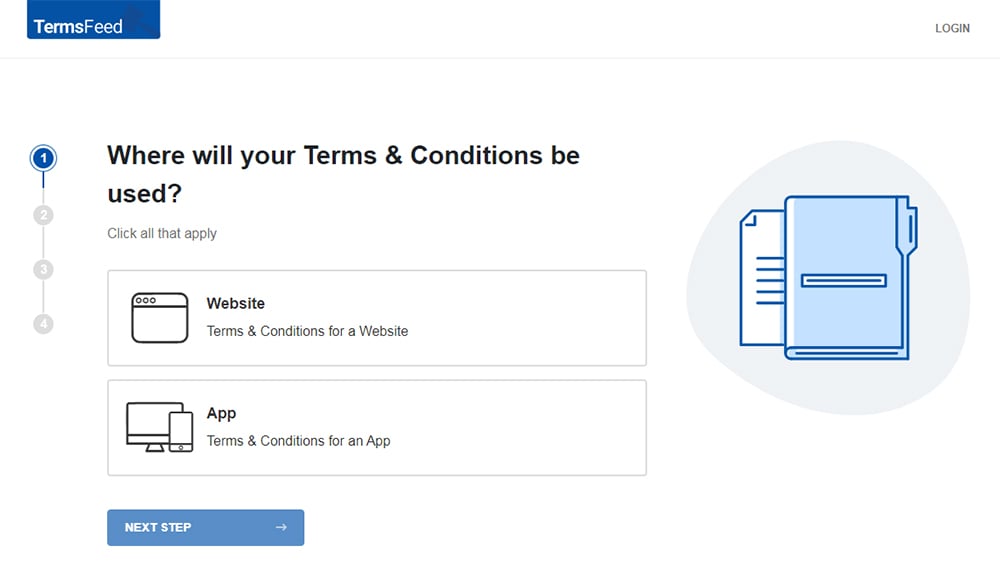
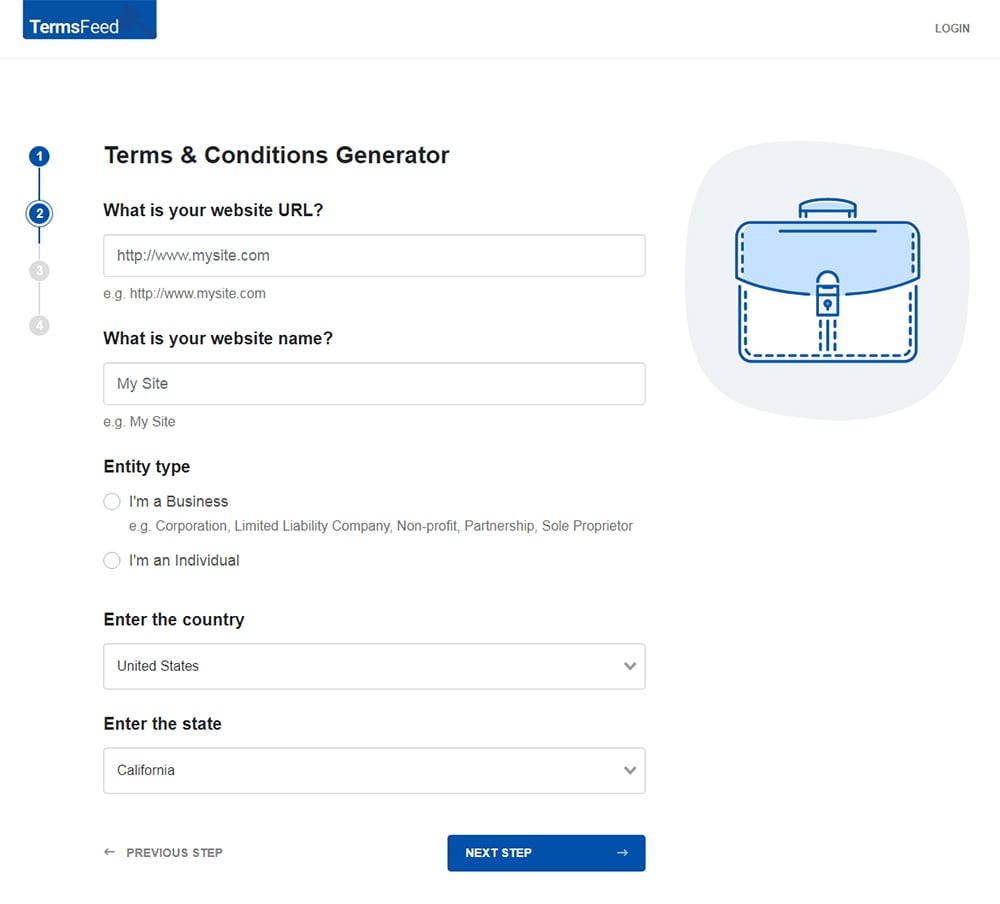
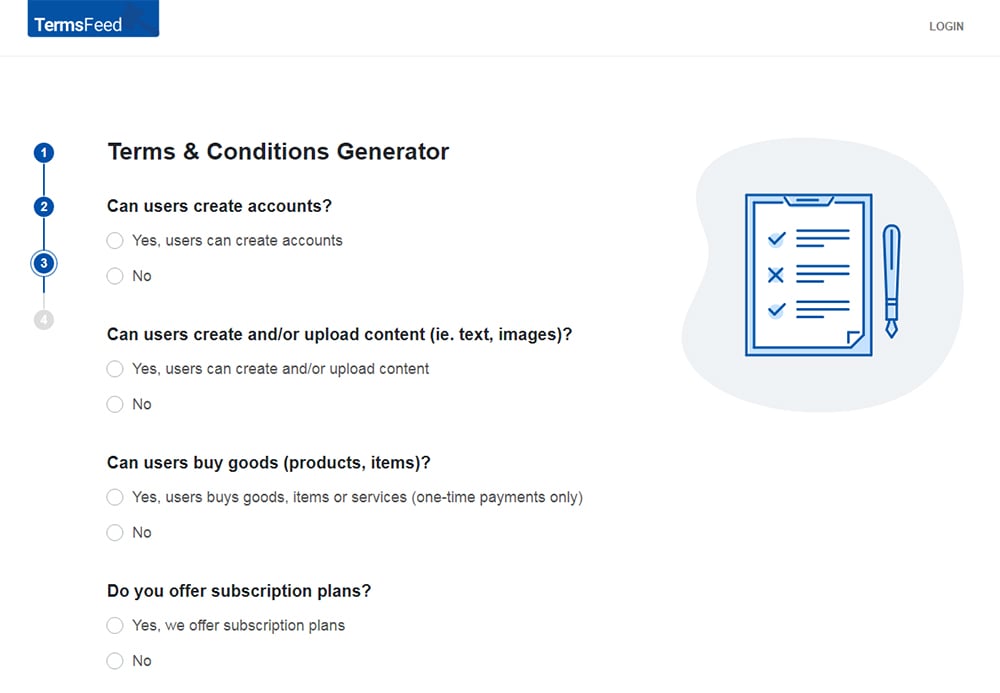
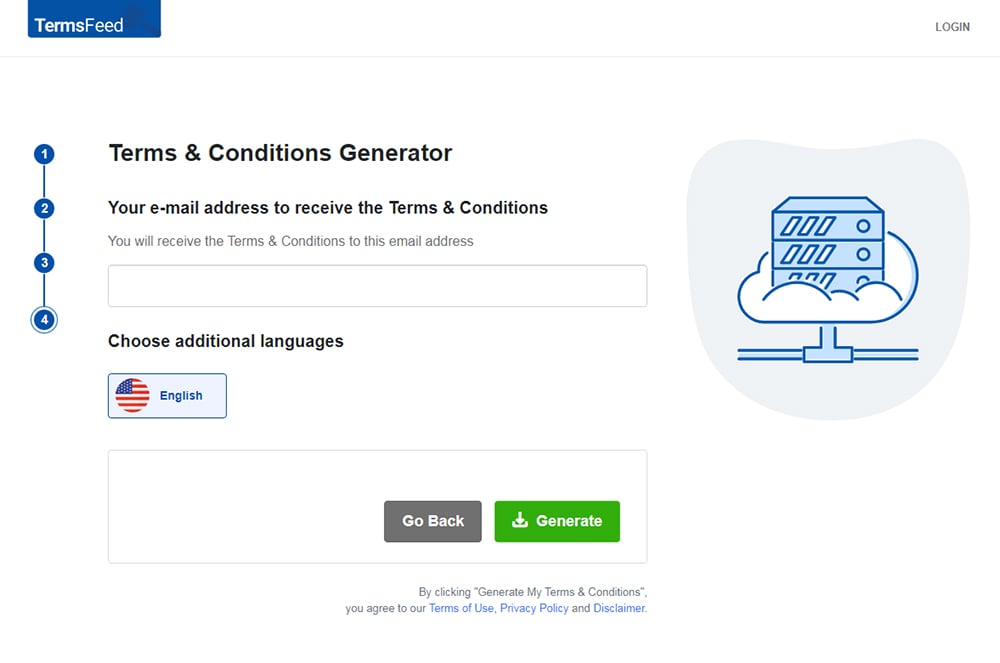 You'll be able to instantly access and download the Terms & Conditions agreement.
You'll be able to instantly access and download the Terms & Conditions agreement.A Customer Service Agreement is a legal contract between you and your customers that lays out the details about the services your company provides and what your customers need to consent to in order to access those services.
A Customer Service Agreement covers the rates that customers must agree to pay and the rules they need to follow in order to use your services, as well as what services they are agreeing to pay for and how either party can terminate the contract.
It typically includes the following information:
A Customer Service Agreement is similar to a Terms and Conditions agreement (also called a Terms of Use or Terms of Service agreement), in that both documents contain clauses explaining what consumers need to agree to in order to use your services.
The main difference between a Terms and Conditions agreement and a Customer Service Agreement is that a Terms and Conditions agreement can be used for most businesses that sell products or produce content, while a Customer Service Agreement is written specifically for companies that provide some kind of service.
For example, Dr. Bronner's, a company that sells hygiene products, maintains a Terms of Use agreement on its website, letting users know what they must agree to in order to use its site:
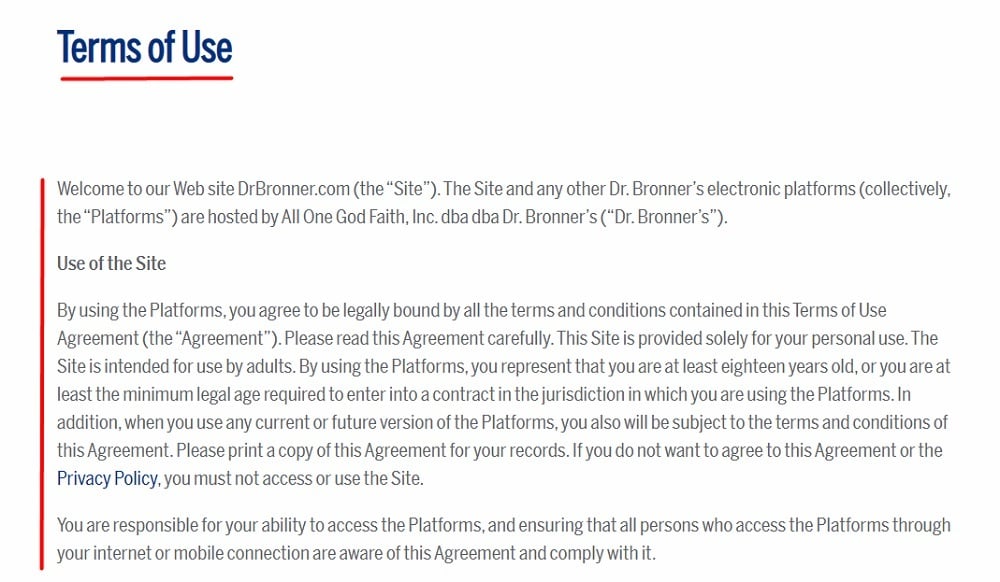
AT&T , a telecommunications company that provides mobile phone, internet, and TV services, uses its Consumer Service Agreement to explain its general terms, as well as its terms for its various services:
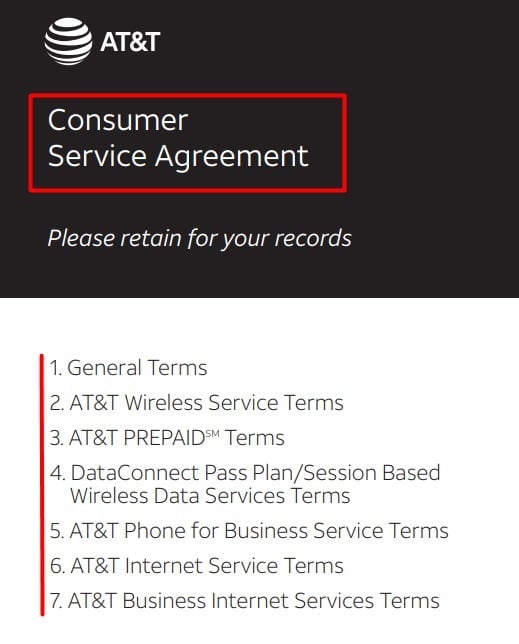

While there are currently no U.S. laws that require businesses to have a Customer Service Agreement, it's still a good idea to have one if you offer any kind of service. A CSA can be used to educate customers and ensure payment, and it can help provide legal protection if a customer doesn't follow the rules outlined in the agreement.
The primary purpose of a Customer Service Agreement is to educate your customers about the services they are signing up for, how they can pay you for those services, and what happens if either party terminates the agreement.
AT&T's Consumer Service Agreement includes its Internet Service Terms clause, which reminds customers that they must agree to its policies and terms in order to use its services, and lets customers know that it will inform them about any "meaningful limitations" to its services:
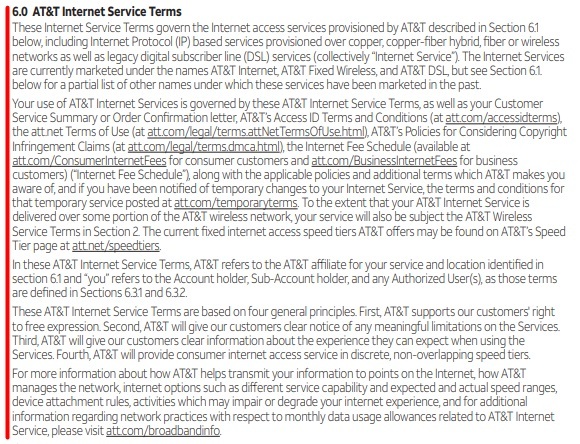
One important part of a Customer Service Agreement is a payment clause, which communicates how and when customers need to pay you in order to receive your services. Communicating directly about your payment and billing expectations can help to ensure that you are paid on time and in full.
Gateway Fiber, an internet service provider, uses its Customer Service Agreement to explain that customers must agree to pay installation, monthly service, service visit, and equipment use charges, as well as any applicable taxes and fees, and to let customers know that it reserves the right to change its terms, fees, or charges at any time:
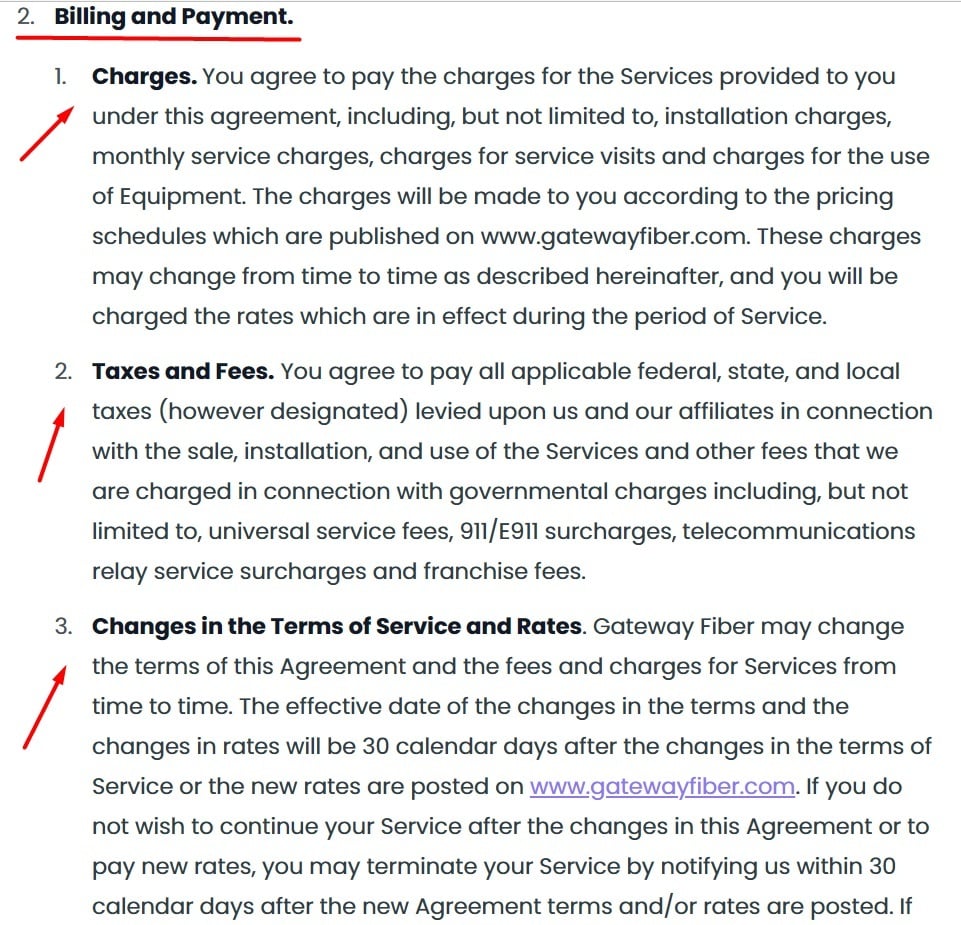
While not necessarily legally binding, a Customer Service Agreement can help provide legal protection in case a customer refuses to pay or breaks the rules they agreed to follow.
You can include clauses in your CSA that address things such as actions you'll take if payments aren't received, such as suing for lost profits and disabling accounts.

Your Customer Service Agreement should be clearly written and easy to understand. There is no need to use legal jargon or terms that the average person wouldn't know. You should aim to write your CSA in a way that an eighth-grader could comprehend. If you need to include technical terms, you can add a glossary to your CSA to define the terms.
To write an effective Customer Service Agreement, you will need to make sure that it contains relevant clauses, including service description, customer terms, payment information, dispute resolution information, how you or your customers can terminate the contract, and how customers can contact you.
Below we'll look at some of these clauses in further detail, with examples.
This introduction type of clause explains what customers need to agree to in order to use your services. It will typically state that users must agree to the terms in the agreement when using the service.
For example, any customers that wish to use the United States Postal Service's Premium PO Box Services must first read and sign its Customer Agreement for Premium PO Box Service Additional Services. This agreement includes a information that lets customers know that they will not receive additional services if they do not sign the agreement stating that they have read and agree to its contents:
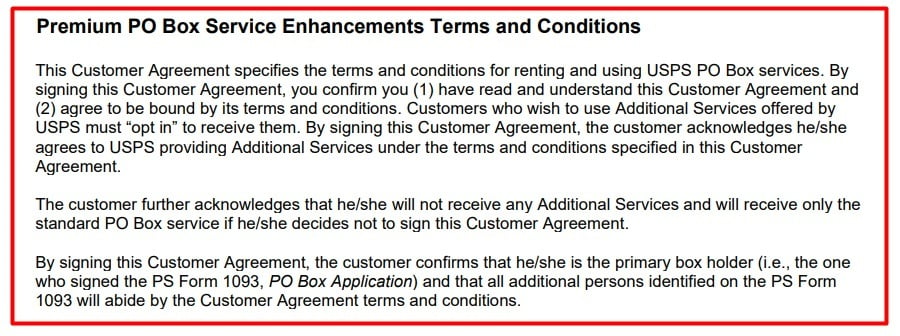
This clause should describe the scope of the services you provide and can be used to manage customer expectations by explaining situations that are not included as a part of your services.
AT&T uses its Customer Service Agreement to describe all of its services, including its Internet Service, and to let customers know what terms those services are subject to and how they can opt out of certain features:
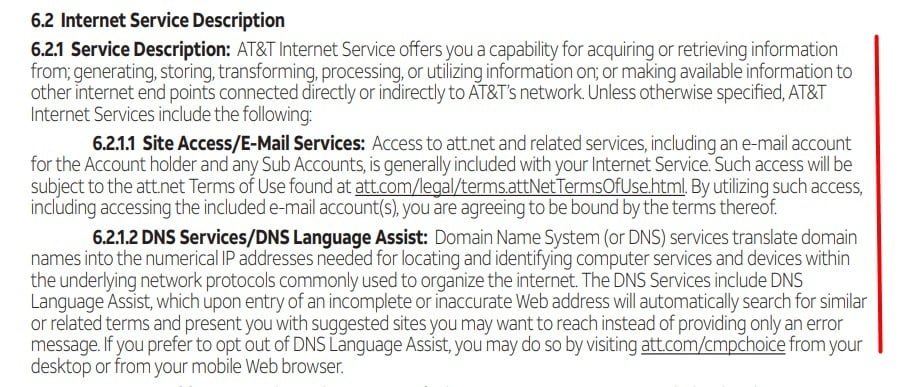
Reliance Global Call, an international phone card service, uses its Customer Service Agreement to describe the extent of its services and to let customers know that it reserves the right to make changes to its services at any time:

In sum, this clause can outline the services you provide, and reserve the right to change this at any time.
If desired, for extra clarity, you can outline some things you do not provide with your services. For example, a phone service company can note that it does not provide text message coverage but rather only calling features. This would be helpful since most people nowadays assume that calling and texting are together, so noting this separation can be helpful.
This clause discusses billing and payment details. It should describe exactly how much your services cost and inform customers about any additional fees or charges that they need to be aware of (such as late fees or annual subscription charges).
It should let customers know what kind of payment plans you have (if any), and what types of payment methods you accept.
If you provide a subscription service, you should describe when customers can expect to have their payment withdrawn from their accounts. You can also use this clause to let customers know if you provide refunds.
Cox, a digital cable television provider, includes a Charging, Billing, and Payments clause in its Customer Service Agreement. This clause informs customers that they must pay their bill on the due date and describes the types of charges that may be included on the bill. It also reminds customers that they are responsible for paying any applicable taxes and fees:
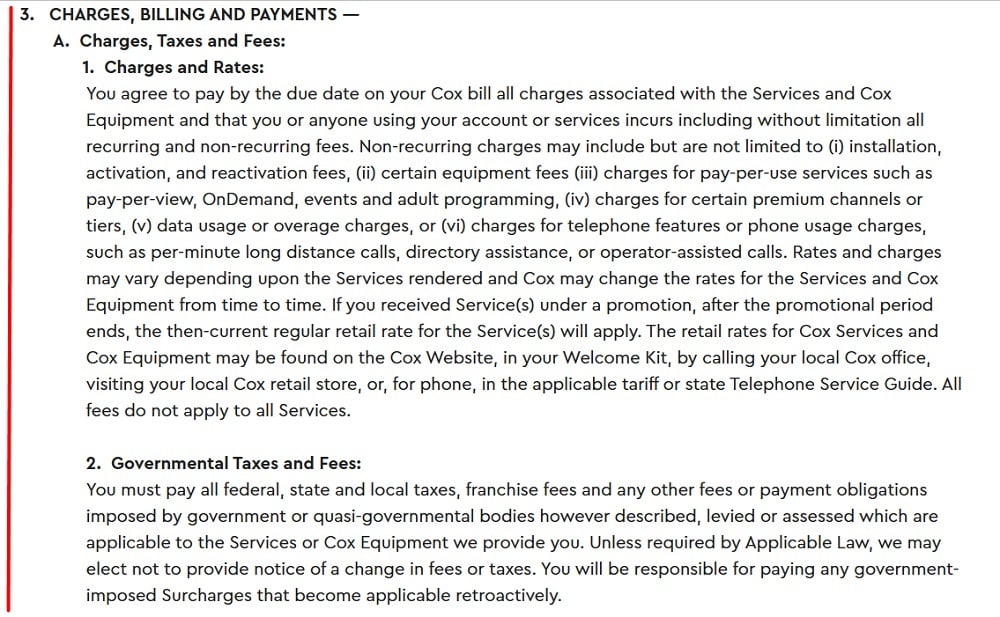
SiriusXM, a company that provides satellite and online radio services, includes an Automatic Renewal clause in its Customer Agreement to remind customers that their subscriptions will continue to automatically renew until they cancel them:
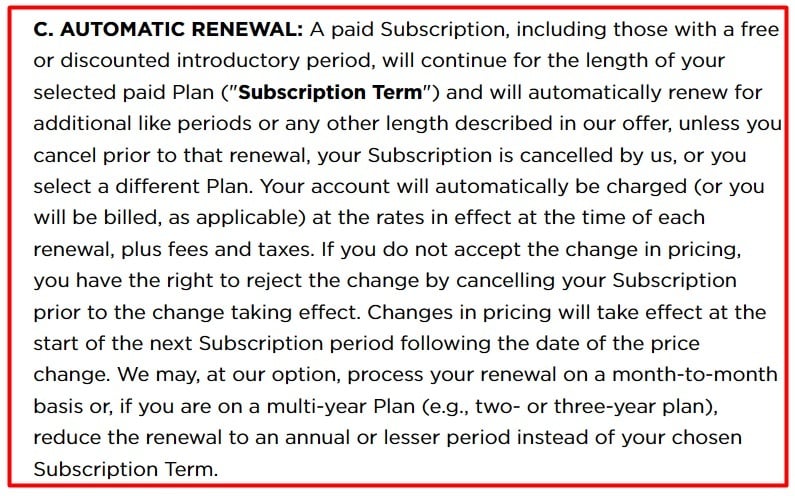
This clause gives customers steps they can take to resolve any disputes they may have. Some businesses provide links to a regulating dispute resolution board, while others may simply include a way for customers to contact them with any issues.
AT&T's Customer Service Agreement contains a Dispute Resolution by Binding Arbitration clause that includes a link to its customer service department. It informs customers that disputes that cannot be resolved by its customer service department can be resolved either through binding arbitration or small claims court. It goes on to explain what arbitration is and lets customers know what kinds of claims can be resolved through arbitration:
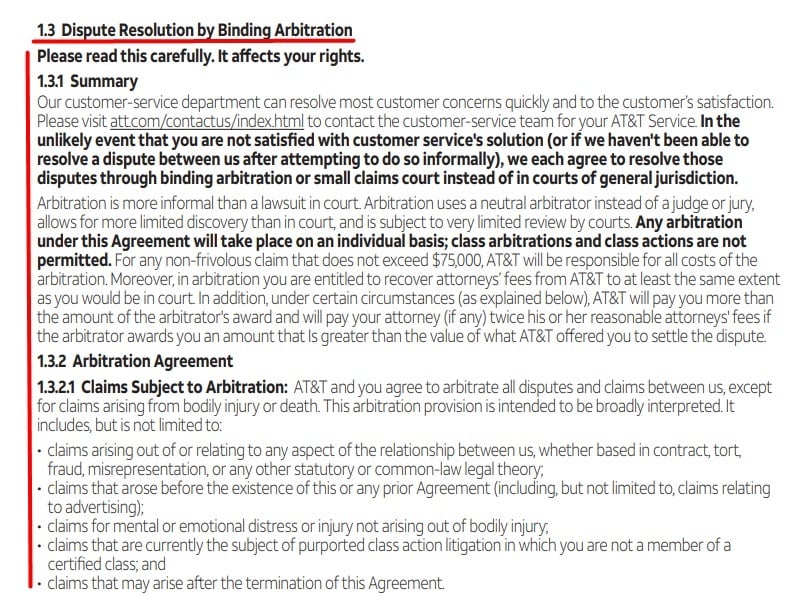
This clause lets customers know what the grounds for termination of the Customer Service Agreement are for either party, what steps they can take to terminate the contract, and what they can expect once the CSA is terminated.
My Plan Assist provides Plan Management Services for participants of Australia's National Disability Insurance Scheme (NDIS). Its Customer Service Agreement includes an Ending This Service Agreement clause which lets customers know that either party must give two weeks' notice before terminating the Agreement:
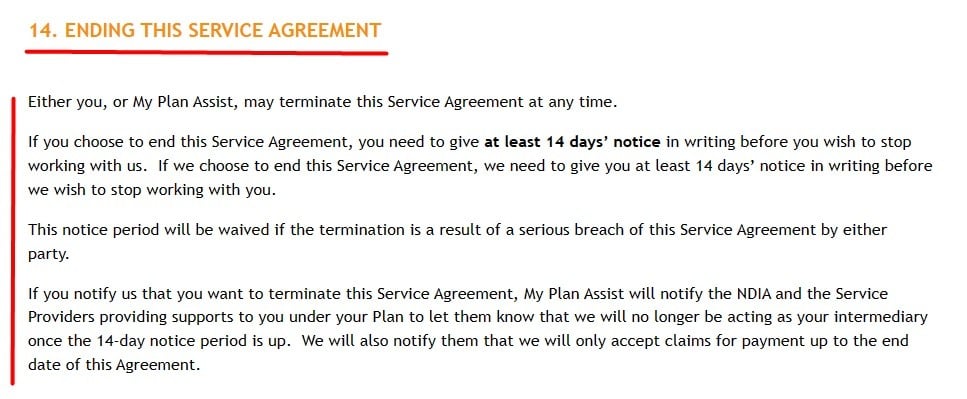
Gateway Fiber's Customer Service Agreement includes a Termination clause that lets customers know how they can terminate the agreement, the circumstances in which it can suspend or terminate the agreement, and what happens after suspension or termination of the agreement:
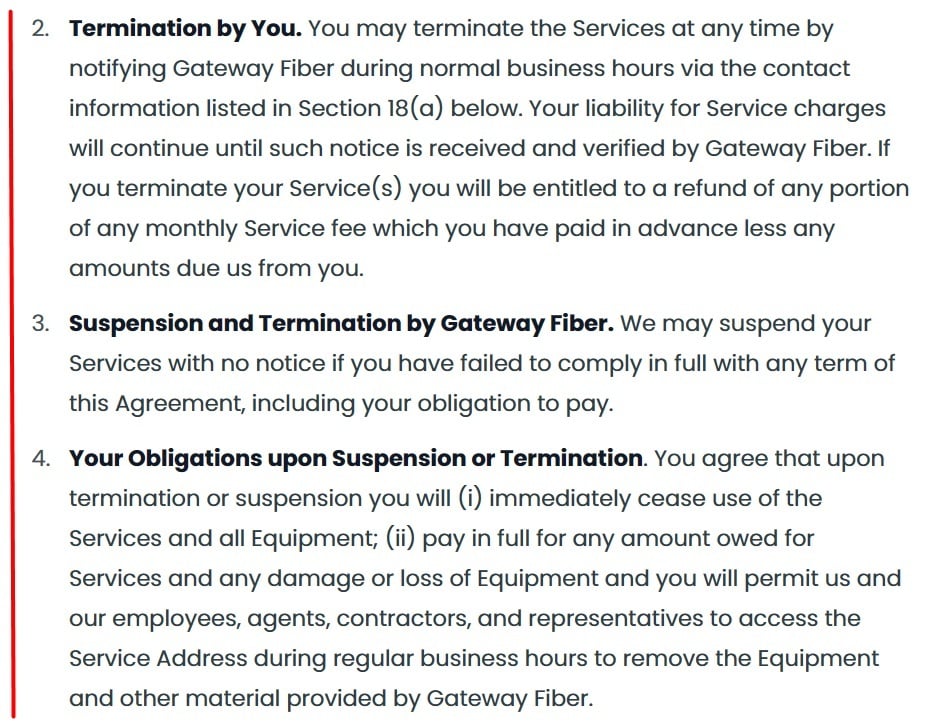
You should include your contact information within your Customer Service Agreement so that customers know how they can get a hold of you with any questions or concerns. It's a good business practice to provide multiple methods for contacting you, including via phone, email, or postal mail.
The Customer Service clause in Reliance Global Call's Customer Service Agreement provides customers with an email address and two phone numbers they can use to contact the company:

Displaying your Customer Service Agreement is an important aspect of having one. It must be displayed appropriately for it to be effective. The next section will address this.

Once you have your Customer Service Agreement written, it's time to put it somewhere your customers can find it. You should always ensure that links to your legal documents are placed conspicuously so that customers don't have to waste time hunting your website to find them.
You should also get active consent from users, showing they agree to your terms.
One of the most common places for businesses to put links to their legal documents is within their website footer.
A website footer is a popular place to put links to legal documents, as it is a static location that can be accessed no matter what page a customer navigates to.
Reliance Global Call includes a link to its Customer Service Agreement in its website footer, alongside other important legal links:

To get users to agree to it, use a clickwrap method such as a checkbox next to an "I Agree" statement and checkbox that users must click. This can be at the point when the user officially registers for the service and formally creates a relationship between you and them.
Here's an example of how this can look, from Nintendo:
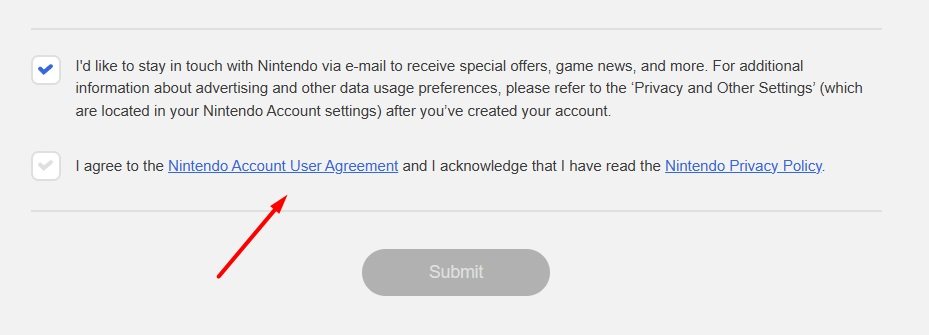
A Customer Service Agreement is a legal contract between you and your customers that describes what they need to agree to in order to use your services.
While not currently legally required, it's still a good idea to maintain a CSA on your website, as it can serve to educate your customers, help ensure payment for services, and provide legal protection.
When writing a Customer Service Agreement, you will want to make sure that it is clearly written and easy to understand, and that it contains relevant clauses.
Some important clauses to consider including in your Customer Service Agreement are:
Your Customer Service Agreement should be placed somewhere that is easily accessible, such as linked within your website footer. Use an "I Agree" checkbox to get users to agree to its terms when they sign up for your services.
Comply with the law with our agreements, policies, and consent banners. Everything is included.
Disclaimer
This article is not a substitute for professional legal advice. This article does not create an attorney-client relationship, nor is it a solicitation to offer legal advice.
Last updated on
Appears in
Related articles
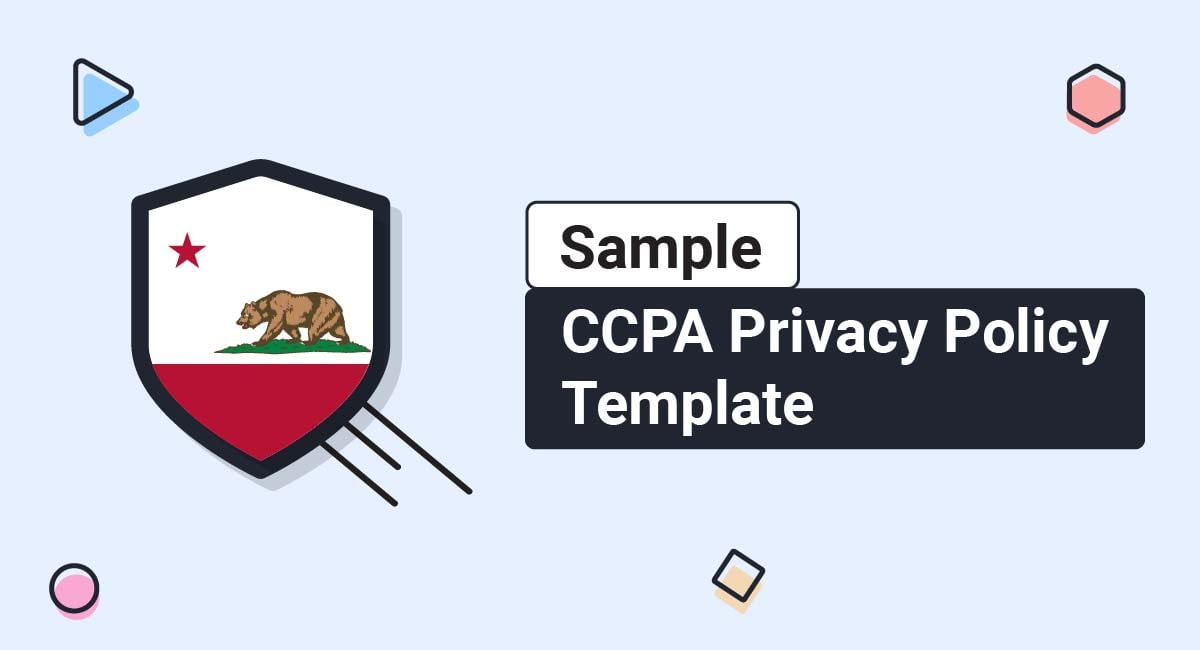
The California Consumer Privacy Act (CCPA) took effect on January 1st, 2020 and affects businesses all over the world. The CPRA expanded it via a number of expandions and amendments. This law requires businesses to fully disclose how they treat consumers' personal information. On your road towards CCPA (CPRA) compliance, one important.
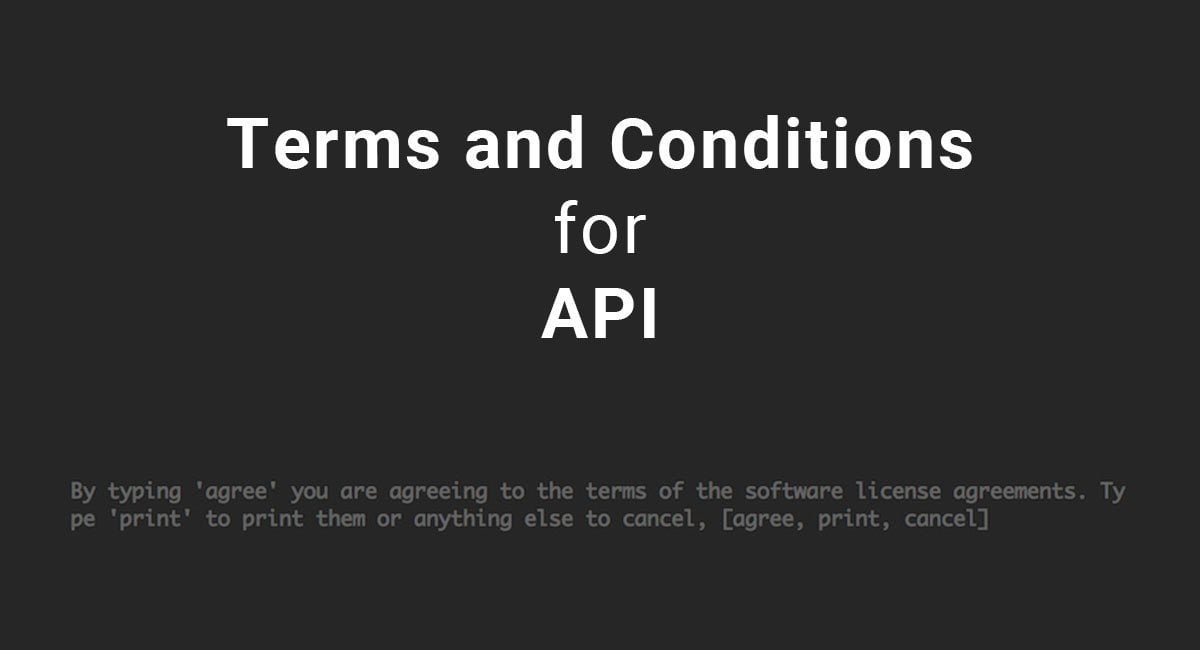
While we covered various ways on how to announce the updates of your legal agreements to users (and why this is important), we mentioned how far more important is for the legal agreements to be enforceable. Legal agreements your website or mobile app can be any of the below: Privacy Policy Terms and.
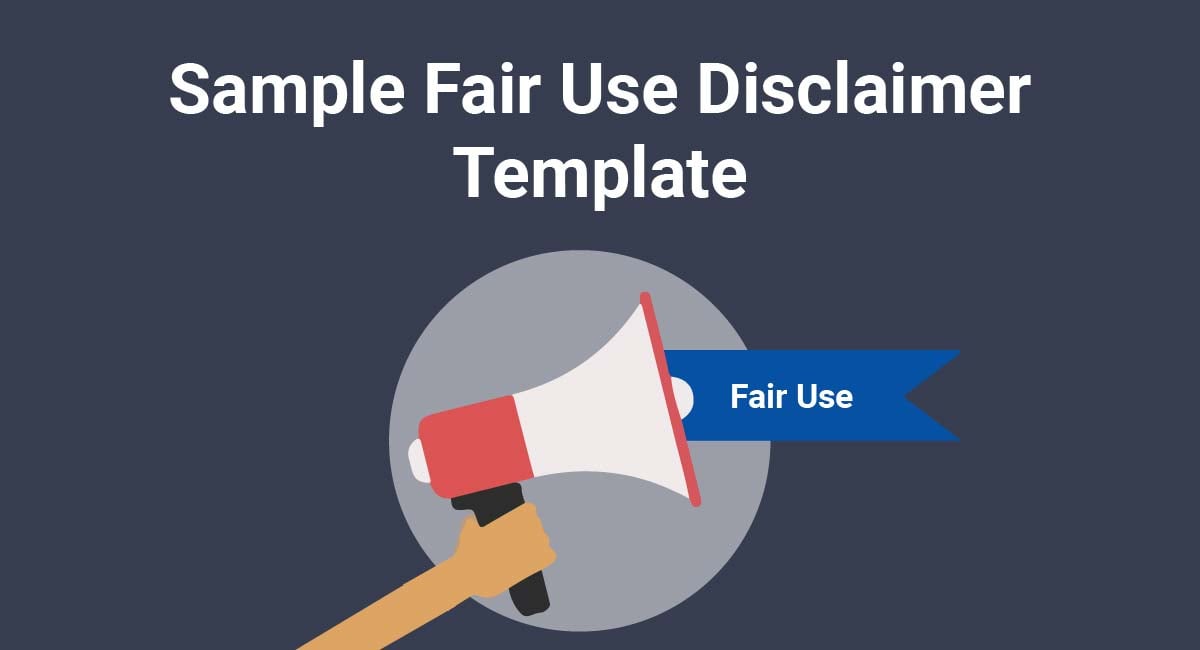
Fair use disclaimers let the reader know that although you're using copyrighted materials without the permission of the copyright's owner, you're still using those materials legally. These disclaimers have a lot of value for creators because they can deter copyright holders from legal action. Cease and desist letters, threats from.
Comply with the law with our agreements, policies, tools and cookie consent banners. Everything you need is included.
Disclaimer: Legal information is not legal advice, read the disclaimer. The information provided on this site is not legal advice, does not constitute a lawyer referral service, and no attorney-client or confidential relationship is or will be formed by use of the site.
Copyright © 2012 - 2024 TermsFeed ® . All rights reserved.